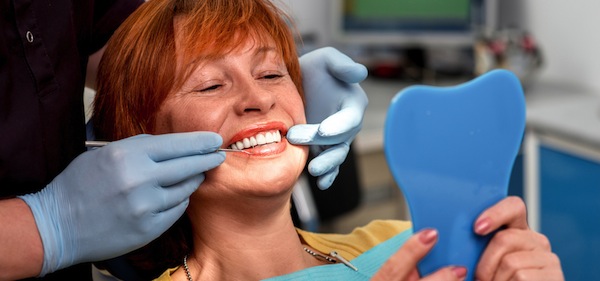Can your mouth tell you about your overall health? From kidney disease and osteoporosis to anaemia and diabetes, studies show that what’s happening in your mouth can be very telling about the rest of your body.
Bone and tooth loss
Some studies show that women with osteoporosis are more likely than men to lose teeth. This is because osteoporosis can weaken the jawbone leading to loos of teeth. Osteonecrosis is a rare condition that causes bone death of the jaw, and one to watch out for if you’re taking a particular kind of osteoporosis medication called bisphosphonates.
Kidney disease and gum disease
According to some research, there could be a link between kidney disease and gum (periodontal) disease. Therefore, taking care of your teeth and gums might reduce your risk of developing chronic kidney problems, since adults without teeth may be more likely to have chronic kidney disease than those with teeth.
Anaemia and pale gums
A person with anaemia either cannot produce enough red blood cells or there isn’t enough haemoglobin (a type of protein) contained in their red blood cells. As a result, their body doesn’t get enough oxygen. This can lead to dryness of the mouth, which can make the gums and mouth sore and pale, and the tongue inflamed (a condition called glossitis). A doctor can give you advice on how to treat different types of anaemia.
Rheumatoid arthritis and gum disease
Rheumatoid arthritis and gum disease are similar in that they both are inflammatory conditions. As a result of this similarity, some studies suggest that people who suffer from rheumatoid arthritis may be eight times more likely to have gum disease than people without it. However, treating existing gum infections is believed to help to reduce joint pain and inflammation. The only issue is that rheumatoid arthritis sufferers may struggle to brush and floss properly if their finger joints are affected.
Medicines and dry mouth
A dry mouth and lack of saliva raises the risk of cavities and gum disease, as saliva lubricates and helps neutralise the acid in plaque. Some drugs, such as antihistamines, decongestants, painkillers and antidepressants, can cause a dry mouth, so consider if you really need to take them or if there’s an alternative. Another condition to be on the watch for is Sjögren’s Syndrome, where the body’s immune system attacks saliva glands and tear ducts, which causes chronically dry eyes and mouth.
Diabetes and gum disease
Diabetes and gum disease work together in an adverse cycle. Elevated blood sugars can increase the risk of developing gum disease, and gum disease can make it difficult to keep blood sugar levels in check. Diabetes can also make the body more vulnerable to infection. If you suffer from diabetes, you can protect your gums by keeping blood sugar at a healthy level as much as possible, and by brushing after each meal and flossing daily.
How to have healthy gums and teeth:
Strong tooth enamel, rather than whiteness, is a great indicator of healthy teeth. Healthy gums should look pink and firm, with no swelling. Look after your teeth and gums by:
- brushing your teeth at least twice a day for two minutes, especially after meals
- flossing at least once a day
- using fluoridated toothpaste to harden the enamel
- drink lots of water so that your mouth produces enough salvia to protect your teeth
- limiting acidic and sugary food and drinks, and avoiding smoking
- seeing your dentist at least once a year for a check-up.
Read more at WebMD.

